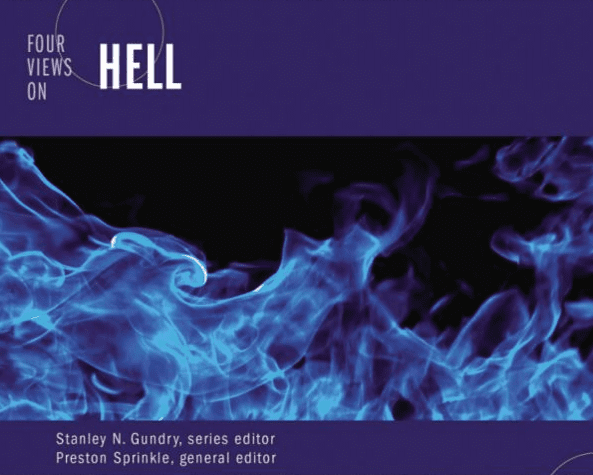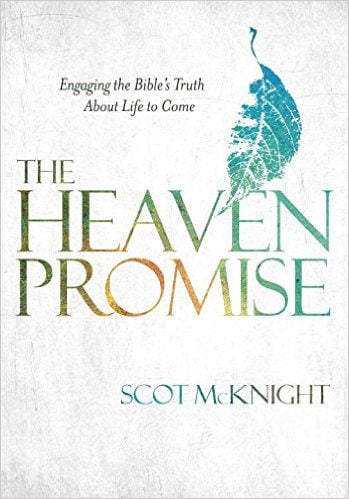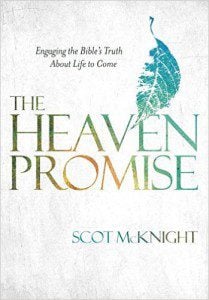Erasing Hell – A Response (Jeff Cook)
I have deep respect for the work of both Francis Chan and Dr. Preston Sprinkle. In their recent book Erasing Hell: What God said about eternity, and the things we made up, the authors move the discussion of hell through a few chapters of Bible study and into the realm of philosophic thought: discussing the nature of love, God’s goodness, and our ability to conceptualize God’s priorities. I continue to appreciate Chan and Sprinkle’s hearts, and unlike some recent works seeking to display what is best to believe about God’s future, Erasing Hell is worthy of discussion and critique.
Dress it up however you wish, Erasing Hell is a response book to Rob Bell’s Love Wins, yet despite replicating Bell’s style in their cover art and promotional video—the primary problem in my mind with Erasing Hell is that the authors do not speak to the same audience.
Recall the motivation behind Bell’s book, “I’ve written this book for all those, everywhere, who have heard some version of the Jesus story that caused their pulse rate to rise, their stomach to churn, and their heart to utter those resolute words, ‘I would never be a part of that’ You are not alone. There are millions of us.” (viii).
This is primary. Bell wants to speak to a large number of people who reject the Jesus faith because of the way Christians have interpreted and displayed hell.
Bell’s not alone in caring for such people. Many of us have personally rejected Christianity or have friends and family who will not consider our God because he chooses eternal conscious torment for the damned. The hell described by Chan and Sprinkle is not difficult to believe in conceptually (like the trinity); it is not difficult to believe because of apparent inconsistencies (like the inerrancy of scripture); eternal conscious torment is difficult to believe because it makes the character of God look repugnant—and that is a bridge too far for some. Many of us make the same move when rejecting Allah, Zeus, Vishnu, Aphrodite, or Mammon. We’ve decided such God’s are not worthy of worship—even if they were real. In the same way, Bell’s audience thinks that the God you love is not worthy of devotion—be he the creator God or not.
And something needs to be said to such people.
Lay out whatever faults you will, Rob Bell has stepped up for the sake of the person who might believe, but can’t. Does Bell get it right all the time? Arguments have already been made in multiple places (including this blog) objecting to some of his conclusions. However, Bell’s audience has not disappeared simply because a few PhDs stride forward and say, “You know that’s really not the best way to translate ‘kolasis.” Until those responding to Love Wins take the hard next step and—in an apologetically informed, evangelistically minded way—address Bell’s audience with a sensible, compelling portrait that makes hell attractive and rationally viable, they have not entered the conversation at hand. Though some of Erasing Hell is strong (I particularly liked chapter 2), this is the principle failure of Chan and Sprinkle’s book.
The authors primary message is easily identified throughout. It says, “I feel sick. I would love to erase Hell from the pages of scripture” (14). But “we need to surrender our perceived right to determine what is just and humbly recognize that God alone gets to decide how he is going to deal with people” (131). For “God is perfect and right in all he does” (133) even if his “divine actions don’t fit our standards of logic or morality” (135).
My friends, if you care about those you think will burn forever—that kind of apologetic for hell fails. In the language of our skeptical friends, it reads, “The God over here can do whatever he wants (be it fiery torment), to whoever he wants (be it your 4 year old), for as long as he wants (let’s say, forever). And when he does it, the rest of us will shrug confused shoulders and cry by your side.”
Instead of engaging in creative apologetics and evangelism, Chan and Sprinkle have chosen to circle their wagons, grip their reading of scripture, and pitch ideas they hope will keep themselves (and presumably the masses) holding to a belief that they consistently describe as nauseating.
To those of you in seminary, to those of you in philosophy departments, to those of you leading in the church who are able to think real hard—we need better answers.
The course forward in my mind is clear. Though Chan and Sprinkle reject Annihilationism with a dismissive wave (107), it’s a view which is both easy to establish in the scriptures (we may even say difficult to reject) and doesn’t have the ridiculous baggage of eternal conscious torment. In my mind, the best road forward entails reimagining hell as the end of evil. For Christian and non-Christian alike this is a desirable and praiseworthy good—and it’s worth promoting the fact that our God agrees.
This was a response. In upcoming posts, we will discuss some of the specific claims Chan and Sprinkle make regarding God’s nature, whether or not God can do whatever he wishes and remain good, and why God wants hell to exist.
Jeff Cook teaches philosophy at the University of Northern Colorado, pastors Atlas Church (Greeley), and is the author of Seven: the Deadly Sins and the Beatitudes (Zondervan, 2008) and Everything New (2012).











